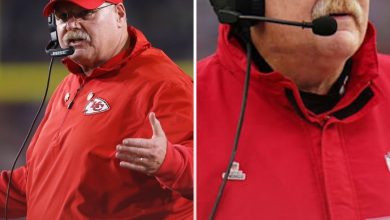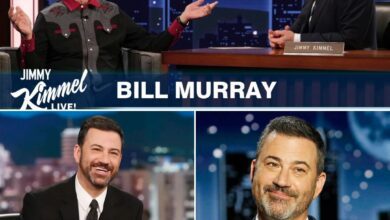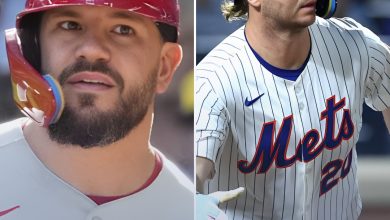Maren Morris Opens Up About ‘D R E A M S I C L E’ and Her Australian Tour: “This Album Feels the Most Cohesive of My Career”.LC
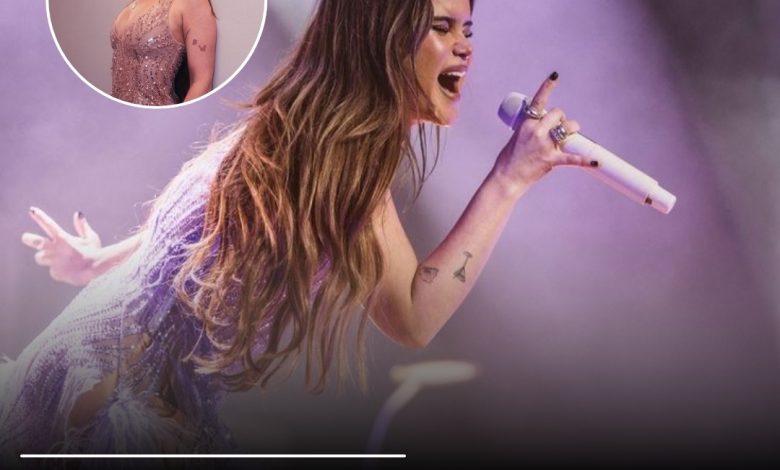
Life in our headphones as we know it: when a country artist grapples with heartbreak or separation, the genre already has a script. Acoustic sincerity. Sorrowful steel guitars. Boot-stomps shaking tears loose, reliable as sunrise and just as cleansing. There’s nothing like licking your wounds, strumming a defeatist ballad under a wide-open sky. In Nashville, shattered hearts demand cinematic rebirth, and tradition insists we comply.
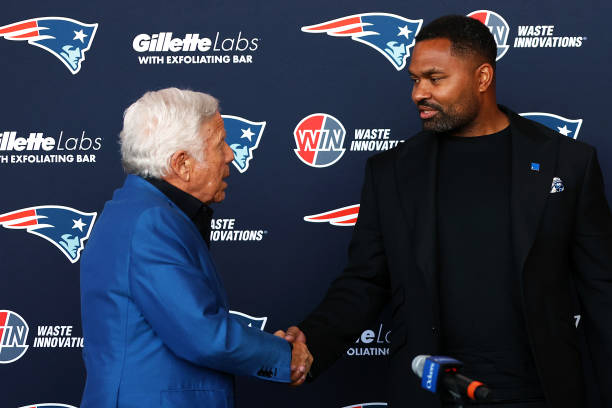
But Maren Morris was a country star, born and bred in Texas. She has always been an iconoclast, forever dodging the established tropes within her genre’s harmonious cup. A multiple Grammy and CMA Award-winner, Morris commanded the charts, even as she navigated a tumultuous period of personal separation, public scrutiny, and professional upheaval. Instead of following tradition, she chose another candy store of sounds to tell her story.
Cue D R E A M S I C L E: Morris’ fourth studio album. A collection of glossy confessional pop purrs, decadent with slick humour and an unshakable country twang. By saddling her heartbreak with humour, hope, a martini or two, and steely resilience, D R E A M S I C L E becomes not a country lament, but a slick, glistening declaration of independence.
“These songs capture what happens before, during and after loss,” Morris reflected, “and though that path isn’t linear, it’s necessary to shift into the person I was always going to become.”
After a decade of weaving pop-R&B into her country tapestry, Morris’ final years within Nashville’s walls were marked by mounting friction. Itching against the genre’s increasingly conservative politics, Morris spoke up, and sang louder. Eventually leading to a decision to step away from country radio and award submissions. “Come with me if you please—everyone’s welcome.”
Morris’s new era was one of deep personal reckoning. The professional upheaval soon dovetailed with a publicly documented separation from her then-husband and long-time collaborator, Ryan Hurd. As life would have it, this upheaval also gave Morris the freedom to embrace and write about her newly unearthed identity. She likened life at the time to “a state of loss and grief,” a feeling so intense she admitted, “there are moments where I’m singing on some of these songs and don’t even remember doing the vocals.” The artistic question became: how do you tell your truth when the sound you’ve always trusted can’t carry it anymore? The answer lay in decisive musical evolution: shaking the stars’ steel guitar echoes and personal battles from her heart and spinning them into gold. This artistic rebirth demanded a sound that was intentionally ambitious and wholly her own.
To execute the shift, Morris enlisted pop heavyweights Jack Antonoff, Julia Michaels, Joel Little, and Greg Kurstin, crafting a lush, layered collection of pop-forward songs with her unshakable Texan top-notes. The result is a joyous collection, playfully grounded, brimming with self-love and a wicked smirk in the rearview mirror. It marks a sharp corner turn from its gentler predecessor, Humble Quest.
D R E A M S I C L E‘s heartbreak is far from mournful; it’s deconstructed. Any painful emotions play out seamlessly over a series of spectacular arrangements. Tracks like the ultimate kiss-off ‘too good’ (“But bitch, you still owe me rent!”) and the pop-waltz ‘bed no breakfast’ turn heartbreak into self-respect. Then comes ‘cry in the car,’ an arena-ready catharsis, followed by the raw, confessional intimacy of her Julia Michaels duet, ‘cut!’ The album’s crucial sequencing moves through this clear arc of communal support to personal resilience, culminating in ‘holy smoke,’ a string-drenched closer that captures the beam of hard-won independence.
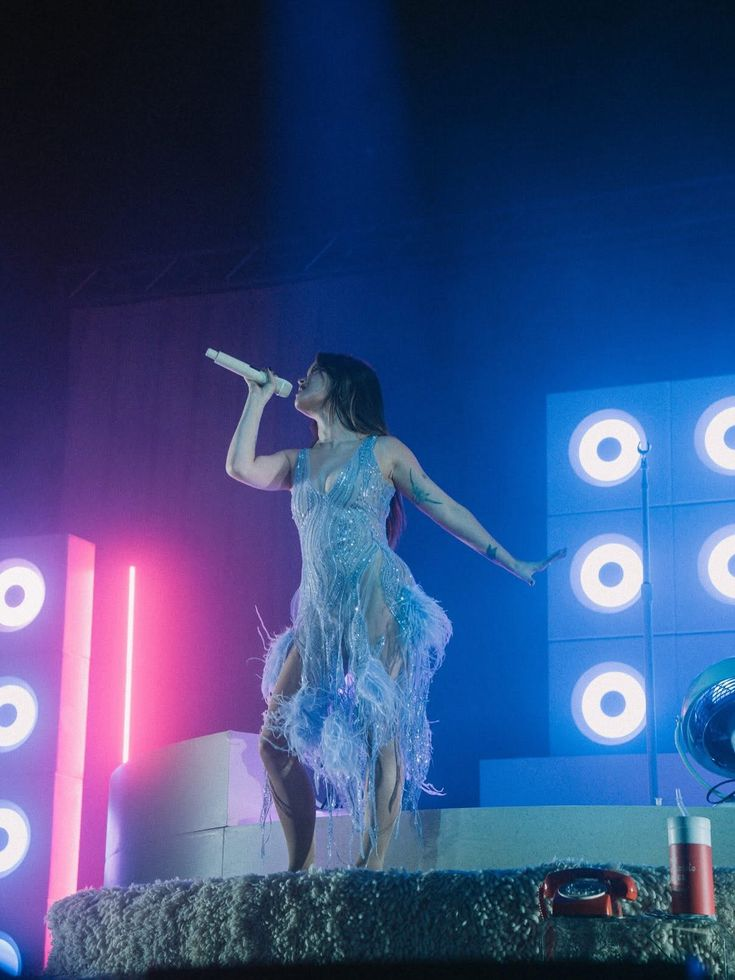
Morris emerges from this era trading genre constraints for boundless possibility – in her sound, her spirit, her identity. She’s swapped the campfire’s quiet strum for the electric floodlights of global pop; her pivot, pure joy and artistic liberty. And her new sound – now gearing up for the Australian leg of The D R E A M S I C L E Tour – proves the best way to mend a broken heart is to grin and sing it. Wide-open starry-night sky optional.
We recently sat down with Morris to speak about the creation of D R E A M S I C L E and her upcoming Australian tour.
Hi Maren! I have been listening so much to your D R E A M S I C L E album! It marks your biggest departure from your early days of country music. I wanted to talk a bit about that journey from country to more pop, R&B, genre fluidity that you’re sitting in now, and how that’s kind of reflected a change in your audience as well.

I think it’s definitely reached some sort of hilt with this record. I’ve always been toying with this genre blend from even my first record, because there were elements on my first album of R&B and gospel and pop and obviously country. And I feel like it’s just grown and matured, and this is its current form, but not final form. When I’m writing the songs, and having to thread a line through the ones that stand out to me as the best representations of each chapter, this album feels the most cohesive of my projects so far. It took a lot of time and writing trips to make this album, a lot of stopping and starting and healing and grieving and all the things in between that. By the time I felt like I was done writing for it, I felt really confident in my decision that it was done and I didn’t have any insecurity about what I was making with the track list and the sequencing. It all just felt really aligned.
You’ve moved from quite a faith based genre in terms of the sort of audiences that might follow country music and gospel to in the past year coming out as queer. I want to know what that journey has been like for you as a woman, and as a queer woman, in the industry?
I always knew it about myself, but I don’t know if [not coming out until now] was a factor of the genre that I grew up in, the state I grew up in – I’m from the south from a pretty conservative family – or also just my age. All through my 20s, I had two really long relationships with men and but still I always knew this part of me was there. I think a lot of expansion and acceptance of my own self has helped me be proud of coming out and brave enough to say it, but also incorporate it into my songwriting with this record, with songs like ‘Push Me Over’. Just really coming into my own and not feeling like I need to conceal it ever, but really being proud to write about it and not feel like it has to be so general for everyone to understand the song or relate to the song. Just writing it because it’s my experience, and that choice has brought so many new fans to my music because of that honesty.
Yeah, now you get the fun queer lot!
Yeah, which I think has always been there, but it has definitely grown with this album. With this tour, because we just wrapped up our US shows, being able to look out the crowd in each city and I know that it feels really loving and accepting, and not just for me, but for people in the crowd, it’s safe to be there. It feels like you can find community and enjoy yourself and connect with people and connect with the music, and it not just be one type of person that’s there. And that’s been growing over the last decade, I think, not just from my coming out, but the stances I’ve taken in my interviews, my activism, everything beyond just the songs, but it all definitely came to a full circle moment with this record and this tour.
Amazing. You’ve got quite an eclectic lineup of producers on this album. I’m kind of wondering how you make that decision to let somebody else in on what is quite personal subject matter as a songwriter?
A lot of the producers I worked with on this, like Greg Kurstin, I had known from my previous two albums. I love him and his family so much, so we know each other. There’s no fear of being vulnerable there. But when I’m working with newer people that became friends through this process, like Naomi McPherson from Muna or Jack Antonoff, those aren’t songs I wrote another day and then brought to them. I was writing with Naomi, I was writing with Jack on those songs, so I’m getting a personal experience beyond just someone at a control board. They’re writing the song with me, and we’re sharing an experience, and we’re sharing stories to get the song written. Obviously it’s coming from my point of view and my experience, but I think having the collaboration of people in the writing room, whether they end up producing it or not, makes me feel connected to the production, because I wrote it with the producers, so that was like a fortunate thing with this album.
I’d never worked with Joel Little before this experience, but with the song ‘Cut!’ and ‘Too Good’, I feel like those songs are so different from each other, and knowing Joel’s background with Lorde and Taylor Swift, I just love that he showed up was there to bring out the best of whoever he’s in the room with. His production is just so wonderful and it makes me instantly obsessed. Even his demos that he sends me of the day’s recording makes me so excited. The reason I love songwriting so much is you get to hang out with your friends for a few hours, and sometimes you get this amazing thing that came out of nothing, and you get to listen to it, and it’s real. I don’t think that feeling will ever get old, that giddiness of, oh my gosh, we actually wrote something. I’m freaking out over.
From what I understand, that’s not a new thing for you. You were contracted as a songwriter early in your career to actually write songs for other musicians. Is that a crazy feeling to give your babies away?
At the time, no because I was really petrified of the idea of being an artist. I had grown up touring all through my teenage years, and by the time I got to Nashville, I was really burned out from being on stage and just performing in general. I didn’t have the energy for it. And I think what gave me the energy for it again was just years of writing for other people, and also learning how to write with other people. Co-writing is very much a Nashville coded experience, and I’d never written with other people before I moved to Nashville, it was always just me writing by myself. I think it gave me a lot of perspective of others, and I was just a sponge to other people’s way of creating. I was able to form my own flavour of it.
It took me a long time to feel confident or feel like I had a voice or something to say. I felt way more comfortable being a songwriter behind the scenes at the time, for other artists to hopefully fall in love with a song of mine. I. That all changed when I wrote my song ‘My Church’, because it was just so spiritual, but not religious. It encapsulated everything I love about music and live music and feeling connected to whatever it is that makes you feel creative. That was the first time I really felt like I’d be a little bit sad if someone other than me was singing this. That ended up being my first single and really led the charge on the rest of my career, like it kicked the door in. Now, I still love writing songs, sometimes they land in other people’s laps, and they’re not necessarily for my projects, but I think I’ll always be writing, whether it’s recorded or not. It’s fun, it’s therapeutic, it’s free, for the most part, just pull something out of your head and make something. I think it would be bizarre if I wasn’t doing my own thing now, though, and I was just writing for others. I’m happy that I found my voice along the way.
Your early touring days were from quite a young age, from 11, I believe, in Texas with your dad acting as roadie and manager. With your upcoming Australian tour, do you still incorporate those kind of grassroots approaches to your touring at all, or is it a much different experience having this huge team behind you now?
I mean, yeah, there’s always going to be these elements of my upbringing that stick with me. I think that’s why I love touring so much, because I’ve just been doing it so long, I don’t know how not to. I get antsy when I’m home too long. So I do love being on the road. I’m one of those rare breeds that just genuinely loves touring, because I get to travel and use my music as the way to do so. The thing I’ll always have within me from my childhood is that love of the craft of a story. My mom instilled this in me. She still will sit on her back porch with a glass of wine and listen to music for six hours and just freak out over lyrics. I’ve definitely gotten that from her, because I love obsessing over lyrics and how this song was written and why, who wrote on this, who played bass on this, all the liner notes, nerding out. With this tour in particular, the storytelling aspect has become a centrepiece of it, it’s not just production and blowing through a set list. There the vulnerable moments of talking about why I wrote something, even if it’s not a heavy story. Sometimes I’m talking about the embarrassing aspect of dating, and that makes me feel connected to the crowd and vice versa, because everyone’s sort of going through that right now too. It brings all of us closer together to just talk about how embarrassing it is, and it’s not all holding your head high with grace. Sometimes it is just like, oh, God, that’s over, but here’s a song about it. It’s a balanced show now of fun and a little bit of healing heartbreak – some dancing, some crying, all in between the full experience.
I mean you’ve had a massive five years, coming into motherhood, the quite public breakdown of your relationship, and then after all that coming out, it’s all huge stuff. But I think you’re right in that the things that do bring us together are those little things of, ‘fuck, that was awkward!’
Yeah! I mean, the songs are there and they’ve been mined through, but I think in between the songs, being able to just have a moment of awkwardness or levity, that’s what I love about live music, it not being perfect. Because anyone can just press play on the album and hear it down, but when I go see live shows I want to to feel like I’m experiencing something authentic and unique, and even if it isn’t and every show of that’s artist tour is the same, they’re at least such an incredible performer or storyteller that they’re making you feel like each night is unique. That’s the beauty of any sort of live medium of art, whether you’re seeing theatre or a film with a bunch of strangers or a concert with a bunch of strangers, there’s a reason we go to spaces and do it. We can’t just be on our phones or watching something on Netflix. As much as I love a good bed rot, getting out and experiencing things live again is really important as a collective, to feel like we’re building community.
Well, thank you for doing that, and thank you for calling people out on their shit. You’ve got quite a name for yourself for calling out industry folk on queerphobic, misogynistic and racial comments. We appreciate that, and we’re looking forward to having you here in Australia.
Oh my gosh, thank you. I’ll always be a loud mouth in those regards, but I appreciate that. And I can’t wait to see you guys and headline over there for the first time, and just see my crowd over there. I’ve toured there opening for other acts but never headlined. So this feels like the right time to do so, with this album and with this many albums behind me, just being able to have a full show and experience for you all.
D R E A M S I C L E is out now via Columbia/Sony Music. You can buy and stream here.
Follow Maren Morris on Instagram, Facebook and TikTok.


